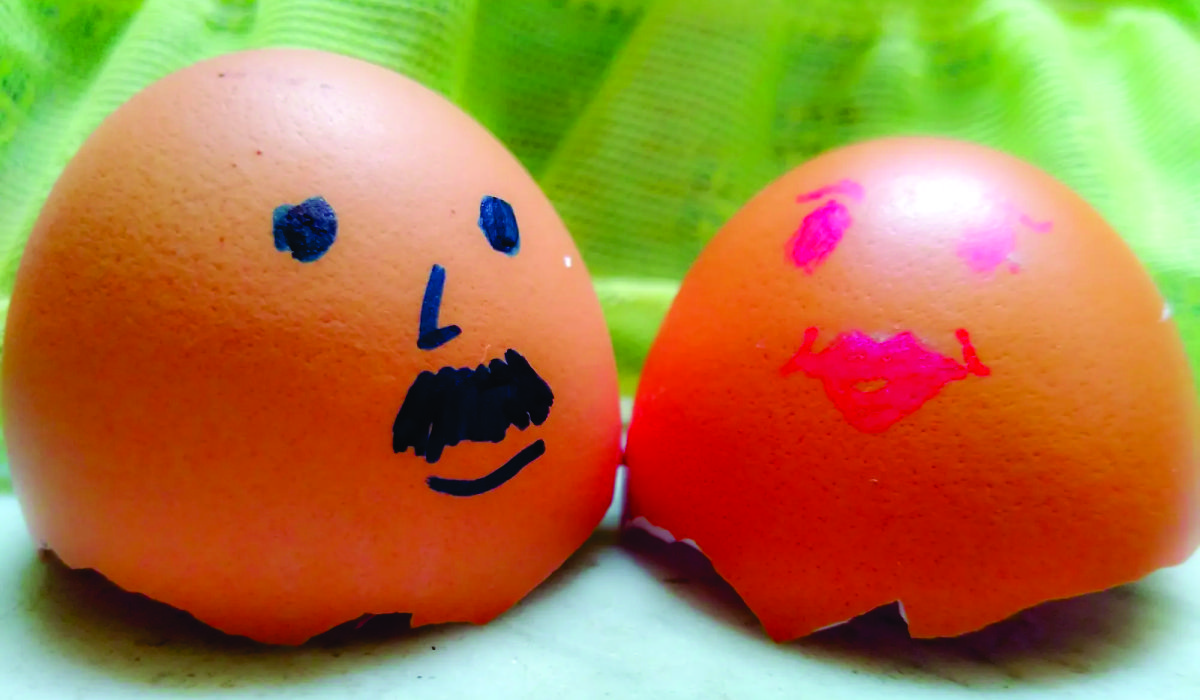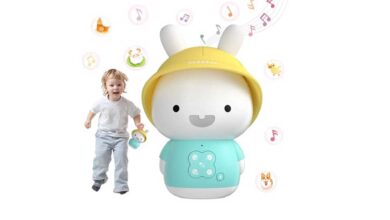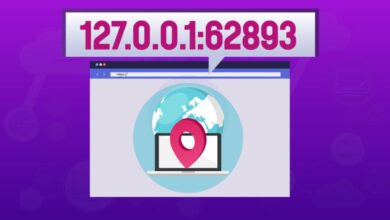Eggshell Parenting Guide – Effects, Causes, and Strategies
Navigating Parenting Styles for Stronger Family Bonds
Welcome to “Eggshell Parenting: A Comprehensive Guide.” In this blog post, we will explore eggshell parenting and why it’s important to understand different parenting styles.
Eggshell parenting is when parents are overly protective and avoid any situation that might upset their child. This might sound like a good idea, but it can have some surprising effects on kids.
We will examine how this style impacts children, what signs to watch for, and why some parents choose this approach. We’ll also compare eggshell parenting to helicopter parenting, which is similar but different.
Understanding how we parent is crucial because it shapes our children’s future. Different parenting styles affect how kids grow, learn, and interact with others. Knowing more about eggshell parenting can help you decide if it’s the right approach for your family or if you might want to try something different. This guide will also provide expert opinions, strategies for change, and ways to reduce parental stress.
Thus, By reading this blog, you’ll learn how to recognize eggshell parenting and its long-term effects on kids. You’ll also get tips on how to create a healthier parenting style. This information is important for making sure your family relationships are strong and positive. Let’s dive in and discover how to best support your child’s development and happiness.
Defining Eggshell Parenting
Eggshell parenting is a style where parents are very careful not to upset their child. They try to avoid any situation that might make the child feel sad or uncomfortable.
This kind of parenting means parents are always walking on eggshells around their child, which is where the name comes from. These parents think they are protecting their children, but it can sometimes cause problems.
Furthermore, Key characteristics of eggshell parenting include always saying “yes” to the child’s demands, solving all their problems for them, and avoiding difficult conversations. These parents believe they are helping their children feel safe and happy. However, this can stop the child from learning how to deal with challenges.
Eggshell parenting is different from other styles like helicopter parenting and authoritative parenting. Helicopter parents are very involved and try to control everything their child does, while authoritative parents set clear rules and teach children to solve problems on their own. Eggshell parenting, on the other hand, focuses mainly on keeping the child happy all the time, even if it means avoiding important lessons and skills.
As a result, Understanding eggshell parenting is important. It shows how different parenting styles affect children and helps parents find a balance that supports their child’s growth and happiness.
Effects on Children
Eggshell parenting can have many effects on children. First, it can cause psychological impacts. Kids might feel anxious or scared because they never learn how to handle tough situations. They might also feel confused about their feelings since their parents protect them from any upset.
Second, there are emotional consequences. Children might have trouble understanding and expressing their emotions. They could feel overwhelmed by feelings they don’t understand because they never learned to deal with them.
Finally, there are behavioral outcomes. Kids might become very dependent on their parents. They might not know how to solve problems on their own. They could also act out when things don’t go their way because they’re used to always getting what they want.
Likewise, Understanding these effects is important. It helps us see why it’s good for kids to face some challenges. Learning to deal with problems makes them stronger and more confident. It helps them grow into healthy, happy adults.
Signs of Eggshell Parenting
Eggshell parenting has clear signs you can spot in daily life. First, there are common behaviors and patterns. Parents who practice eggshell parenting often say “yes” to everything their child wants. They avoid saying “no” because they don’t want to upset their child. They also solve all their child’s problems, not giving the child a chance to learn and grow.
Recognizing eggshell parenting in daily life is important. You might notice a parent always stepping in to make things easier for their child. For example, if a child forgets their homework, the parent might rush to school to bring it instead of letting the child face the consequences. Or, if the child doesn’t want to eat vegetables, the parent might make a separate meal just to keep them happy.
Consequently, Case studies and examples help us understand this better. Imagine a child who never hears “no” at home. They might expect the same from teachers and friends, leading to trouble in school and social situations. Another example could be a parent who constantly reassures their child to the point where the child never learns to comfort themselves.
Therefore, By looking at these signs, we can understand eggshell parenting better. It helps parents see if they might be doing it and gives them a chance to change. This way, children can learn to handle challenges and become strong, independent individuals.
Causes of Eggshell Parenting
Eggshell parenting happens for many reasons. First, there are psychological factors. Some parents feel very anxious about their child’s happiness. They worry a lot about their child feeling sad or hurt, so they try to protect them from everything.
Next, there are environmental influences. Parents see how other parents act and feel pressure to do the same. If their friends or family are very protective, they might think they should be too. The world can also seem like a scary place, making parents want to shield their children even more.
Parental background and experiences also play a big role. Parents who had tough childhoods might want to give their children a different experience. They don’t want their kids to face the same difficulties they did. Or, parents who were overprotected themselves might repeat this pattern because it feels normal to them.
Understanding these causes helps us see why parents might choose eggshell parenting. It shows that they often act out of love and concern. But it also highlights the importance of finding a balance that helps children grow strong and independent. Recognizing these causes can lead to better parenting choices and happier, healthier kids.
Comparison with Helicopter Parenting
Eggshell parenting and helicopter parenting have some similarities. Both styles involve parents being very protective of their children. They both aim to keep children safe and happy. However, they have key differences and distinctions.
Eggshell parents avoid upsetting their children at all costs, often saying “yes” to everything. They shield their child from any discomfort. Helicopter parents, on the other hand, are always involved in their child’s life. They try to control every situation to prevent problems.
The impacts on children are different too. With eggshell parenting, kids might struggle with anxiety and have trouble handling challenges. They are used to being protected and might not learn important life skills.
In contrast, children of helicopter parents might feel stressed and pressured. They might rely too much on their parents to solve their problems, leading to a lack of independence.
Understanding these differences helps us see how each style affects children. It shows the importance of finding a balance that allows kids to grow and learn while feeling supported and loved. Recognizing the impacts can guide parents in choosing the best approach for their family.
Long-term Consequences
Eggshell parenting can have long-term consequences on children. One major impact is on their development. Children might not learn how to solve problems or handle difficult emotions. This can make them feel insecure and unsure of themselves as they grow up.
Another effect is on future relationships. Kids who are always protected might struggle to make friends or work well with others. They could expect the same level of care from friends and partners, leading to disappointment and conflict. They might not know how to handle disagreements or stand up for themselves.
As adults, these children may encounter various challenges. They might find it difficult to make independent decisions and feel anxious when faced with new situations due to lack of experience. This could lead to struggles with self-confidence and independence, affecting their success in both careers and personal lives.
Understanding these long-term consequences shows why it’s important to find a balance in parenting. Helping children face challenges and learning from them prepares them for a strong, happy future. Recognizing the potential issues can guide parents to make better choices for their child’s development and well-being.
Strategies for Change
Changing from eggshell parenting to a healthier approach starts with recognizing the need for change. Parents can look at how they interact with their children. Do they always try to make things easier? Do they avoid saying “no”? These are signs that it might be time for a change.
Practical tips can help parents shift away from eggshell parenting. One tip is to start saying “no” when it’s necessary. It helps children learn boundaries and how to handle disappointment. Another tip is to encourage independence. Letting kids solve problems on their own builds confidence and skills they’ll need in life.
Eventually, Building healthier parenting habits is key. It means finding a balance between protecting and preparing children for challenges. It’s about being loving and supportive while also letting children learn and grow from their experiences.
By using these strategies, parents can create a positive environment where children feel safe to explore and learn. It helps them become resilient and confident individuals who can face whatever comes their way.
Parental Anxiety and Stress
Anxiety and stress can play a big role in eggshell parenting. Parents who worry a lot about their children’s happiness may find themselves always trying to protect them from anything upsetting.
This can lead to always saying “yes” to their child’s wishes and avoiding situations that might cause discomfort. It’s like trying to keep a bubble around their child to shield them from any harm.
Coping mechanisms can help parents manage these feelings. One way is to take deep breaths or talk to a friend when feeling overwhelmed. Parents need to take care of themselves too, so they have the energy to support their child in healthy ways.
Support systems and resources are also important. Parents can talk to other parents or join parenting groups where they can share their experiences. Learning from others can provide new ideas and perspectives on how to handle challenges without overprotecting their child.
By understanding how anxiety and stress affect parenting, parents can find ways to balance their concerns with letting their children learn and grow. Eventually, It’s about finding the right mix of love, support, and guidance to help children become strong, independent individuals.
Impact on Family Dynamics
Eggshell parenting can affect how families relate to each other. First, it can change parent-child relationships. Parents might focus a lot on protecting their children, which can make it hard to talk openly or solve problems together. Children might also feel unsure about their parents’ reactions to everyday situations.
Sibling relationships can be affected too. If one child gets more attention or protection, siblings might feel left out or resentful. They might not understand why their brother or sister gets special treatment, which can lead to arguments or hurt feelings.
Strategies for improving family dynamics include talking openly as a family. Parents can explain why they make certain choices and listen to their children’s feelings. However, Siblings need to spend quality time together and learn to support each other. Setting clear expectations and rules helps everyone feel respected and understood.
By focusing on open communication and fairness, families can build stronger bonds. It’s about creating a supportive environment where everyone feels valued and heard. This helps children grow up feeling secure and loved within their family.
Conclusion
Today, we’ve learned a lot about eggshell parenting and how it can affect families. Remember, eggshell parenting means always trying to protect children from feeling upset or uncomfortable. This can make it hard for kids to learn important things like solving problems and understanding their feelings. Parents need to find a balance between keeping kids safe and helping them grow strong and confident.
To make a positive change, parents can start by saying “no” when it’s needed and letting children face challenges. This helps kids learn and become more independent. Talking openly as a family and spending time together also builds stronger relationships between parents and children. These small changes can make a big difference in how families grow together.
In conclusion, understanding eggshell parenting helps us see how different styles of parenting can affect children’s happiness and development. Thus, By learning more about it, parents can make informed choices that support their children’s growth. Let’s work together to create loving and supportive homes where children can thrive.
Remember, your thoughts are important too! Share your feedback in the comments below and tell your friends about what you’ve learned. Together, we can spread this valuable information and help more families find happiness and balance in their parenting journey.








